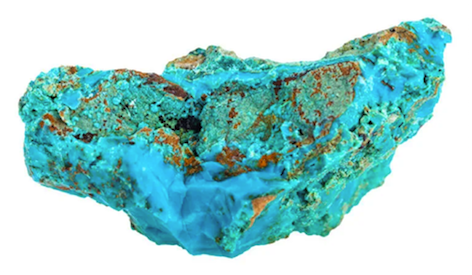Article 1 – Definitions
In these terms and conditions the following terms have the following meanings:
- Supplementary agreement: an agreement whereby the consumer acquires products, digital content and / or services in connection with a distance contract and these goods, digital content and / or services are supplied by the entrepreneur or by a third party on the basis of an agreement between that third party and the entrepreneur;
- Reflection period: the period within which the consumer can exercise his right of withdrawal;
- Consumer: the natural person who does not act for purposes related to his trade, business, craft or profession;
- Day: calendar day;
- Digital content: data that is produced and supplied in digital form;
- Duration agreement: an agreement that extends to the regular delivery of goods, services and / or digital content during a certain period;
- Durable data carrier: any tool – including e-mail – that enables the consumer or entrepreneur to store information that is addressed to him personally in a way that future consultation or use during a period that is tailored to the purpose what the information is for and which allows unaltered reproduction of the stored information;
- Right of withdrawal: the possibility for the consumer to withdraw from the distance contract within the cooling-off period;
- Entrepreneur: the natural or legal person who offers products, (access to) digital content and / or services to consumers at a distance;
- Distance contract: an agreement that is concluded between the entrepreneur and the consumer within the framework of an organized system for distance selling of products, digital content and / or services, in which up to and including the conclusion of the agreement, exclusive or joint use is made one or more techniques for distance communication;
- Model withdrawal form: the European model withdrawal form included in Appendix I of these conditions; Annex I need not be made available if the consumer has no right of withdrawal with regard to his order;
- Technology for distance communication: means that can be used to conclude an agreement, without the consumer and entrepreneur having to be in the same room at the same time.
Article 2 – Identity of the organization
- Name: YOUBYOU Vereniging Amsterdam
- Place of business: Amsterdam
- Visiting address: On request
- Postal address: Jan Lievensstraat 70/2, 1074 TT, Amsterdam (NL)
- KVK#: 34348423
- Websites: youbyou.yoga
- E-mail address: hello@youbyou.yoga
- Telephone number: +31 ( 0) 6 26 86 45 68
- Accessibility: From Monday to Friday from 10 a.m. to 5 p.m.
Article 3 – Applicability
- These general terms and conditions apply to any offer from the entrepreneur and to any distance contract concluded between the entrepreneur and the consumer.
- Before the distance contract is concluded, the text of these general terms and conditions will be made available to the consumer. If this is not reasonably possible, the entrepreneur will indicate before the distance contract is concluded how the general terms and conditions can be viewed by the entrepreneur and that they will be sent free of charge at the request of the consumer.
- If the distance contract is concluded electronically, notwithstanding the previous paragraph and before the distance contract is concluded, the text of these general terms and conditions can be made available to the consumer electronically in such a way that the consumer can can be easily stored on a durable medium. If this is not reasonably possible, before the distance contract is concluded, it will be indicated where the general terms and conditions can be consulted electronically and that they will be sent free of charge electronically or otherwise at the request of the consumer.
- In the event that specific product or service conditions apply in addition to these general terms and conditions, the second and third paragraphs apply mutatis mutandis and the consumer can always invoke the applicable provision that is most favorable to him in the event of conflicting conditions. .
Article 4 – The offer
- If an offer has a limited period of validity or is made subject to conditions, this will be explicitly stated in the offer.
- The offer contains a complete and accurate description of the products, digital content and / or services offered. The description is sufficiently detailed to allow a proper assessment of the offer by the consumer. If the entrepreneur uses images, they are a true representation of the products, services and / or digital content offered. Obvious mistakes or obvious errors in the offer do not bind the entrepreneur.
- Each offer contains such information that it is clear to the consumer what rights and obligations are involved in accepting the offer.
Article 5 – The agreement
- The agreement is concluded, subject to the provisions of paragraph 4, when the consumer accepts the offer and meets the corresponding conditions.
- If the consumer has accepted the offer electronically, the entrepreneur will immediately electronically confirm receipt of the acceptance of the offer. As long as the receipt of this acceptance has not been confirmed by the entrepreneur, the consumer can dissolve the agreement.
- If the agreement is concluded electronically, the entrepreneur will take appropriate technical and organizational measures to protect the electronic transfer of data, and he will ensure a safe web environment. If the consumer can pay electronically, the entrepreneur will observe appropriate security measures.
- The entrepreneur can inform himself within legal frameworks – whether the consumer can meet his payment obligations, as well as all those facts and factors that are important for a responsible conclusion of the distance contract. If, on the basis of this investigation, the entrepreneur has good reasons not to enter into the agreement, he is entitled to refuse an order or request, stating reasons, or to attach special conditions to the execution.
- At the latest upon delivery of the product, service or digital content to the consumer, the entrepreneur will send the following information, in writing or in such a way that it can be stored by the consumer in an accessible manner on a durable medium:
- The visiting address of the establishment of the entrepreneur where the consumer can go with complaints;
- The conditions under which and the manner in which the consumer can make use of the Right of Withdrawal, or a clear statement regarding the exclusion of the right of withdrawal;
- The information about guarantees and existing after-sales service;
- The price including all taxes on the product, service or digital content; insofar as applicable the delivery costs; and the method of payment, delivery or implementation of the distance contract;
- The requirements for terminating the agreement, if the agreement has a duration of more than one year or is indefinite;
- If the consumer has a right of withdrawal, the model withdrawal form.
- In the event of an extended transaction, the provision in the previous paragraph only applies to the first delivery.
Article 6 – Right of withdrawal
With products:
- The consumer can dissolve an agreement with regard to the purchase of a product during a reflection period of at least 14 days without giving any reason. The entrepreneur may ask the consumer about the reason for withdrawal, but may not oblige him to state his reason (s).
- The reflection period referred to in paragraph 1 starts on the day after the consumer, or a third party designated by the consumer in advance, who is not the carrier, has received the product, or:
- If the consumer has ordered several products in the same order: the day on which the consumer, or a third party designated by him, has received the last product. The entrepreneur may, if he has clearly informed the consumer about this prior to the ordering process, refuse an order for several products with a different delivery time.
- If the delivery of a product consists of several shipments or parts: the day on which the consumer, or a third party designated by him, has received the last shipment or the last part;
- For contracts for regular delivery of products during a certain period: the day on which the consumer, or a third party designated by him, has received the first product.
For services and digital content that is not supplied on a tangible medium:
- The consumer can terminate a service agreement and an agreement for the supply of digital content that is not supplied on a tangible medium for at least 14 days without giving any reason. The entrepreneur may ask the consumer about the reason for withdrawal, but may not oblige him to state his reason (s).
- The cooling-off period referred to in paragraph 3 commences on the day following the conclusion of the agreement. Extended cooling-off period for products, services and digital content that has not been delivered on a tangible medium in the event of not informing about the right of withdrawal:
- If the entrepreneur gives the consumer the legally required the right of withdrawal or the model withdrawal form has not been provided, the reflection period expires twelve months after the end of the original reflection period determined in accordance with the previous paragraphs of this article.
- If the entrepreneur has provided the information referred to in the previous paragraph to the consumer within twelve months after the effective date of the original reflection period, the reflection period expires 14 days after the day on which the consumer received that information.
Article 7 – Obligations of the consumer during the reflection period
- During the reflection period, the consumer will handle the product and packaging with care. He will only unpack or use the product to the extent necessary to determine the nature, characteristics and functioning of the product. The basic principle here is that the consumer may only handle and inspect the product as he should in a shop.
- The consumer is only liable for depreciation of the product that is the result of a way of handling the product that goes further than allowed in paragraph 1.
- The consumer is not liable for depreciation of the product if the entrepreneur does not use it for or with it. conclusion of the contract has provided all legally required information about the right of withdrawal.
Article 8 – Exercise of the right of withdrawal by the consumer and costs thereof
- If the consumer makes use of his right of withdrawal, he must report this to the entrepreneur within the cooling-off period by means of the model withdrawal form or in another unambiguous manner.
- As soon as possible, but within 14 days from the day following the notification referred to in paragraph 1, the consumer will return the product, or hand it over to (an authorized representative of) the entrepreneur. This is not necessary if the entrepreneur has offered to collect the product himself. The consumer has in any case observed the return period if he returns the product before the cooling-off period has expired.
- The consumer returns the product with all accessories supplied, if reasonably possible in the original condition and packaging, and in accordance with the reasonable and clear instructions provided by the entrepreneur.
- The risk and the burden of proof for the correct and timely exercise of the right of withdrawal lies with the consumer.
- The consumer bears the direct costs of returning the product.
Download: Annex I – European model form for withdrawal
Article 9 – Obligations of the entrepreneur in case of withdrawal
- If the entrepreneur makes the notification of withdrawal by the consumer electronically possible, he will immediately send a confirmation of receipt after receipt of this notification.
- The entrepreneur reimburses all payments from the consumer, including any delivery costs charged by the entrepreneur for the returned product, without delay but within 14 days following the day on which the consumer reports the withdrawal. Unless the entrepreneur offers to collect the product himself, he may wait with repayment until he has received the product or until the consumer demonstrates that he has returned the product, whichever is earlier.
- The entrepreneur uses the same payment method that the consumer has used for reimbursement, unless the consumer agrees to a different method. The refund is free of charge for the consumer.
- If the consumer has opted for a more expensive method of delivery than the cheapest standard delivery, the entrepreneur does not have to reimburse the additional costs for the more expensive method.
Article 10 – The price
- During the period of validity stated in the offer, the prices of the products and / or services offered will not be increased, except for price changes as a result of changes in VAT rates.
- Contrary to the previous paragraph, the entrepreneur can offer products or services whose prices are subject to fluctuations in the financial market and over which the entrepreneur has no influence, with variable prices. This link to fluctuations and the fact that any stated prices are target prices are stated in the offer.
- Price increases within 3 months after the conclusion of the agreement are only permitted if they are the result of statutory regulations or provisions.
- Price increases from 3 months after the conclusion of the agreement are only permitted if the entrepreneur has stipulated this and:
- These are the result of statutory regulations or provisions; or
- The consumer is authorized to terminate the agreement with effect from the day on which the price increase takes effect.
- The prices stated in the offer of products or services include VAT.
Article 11 – Compliance and extra warranty guarantees
- The entrepreneur guarantees that the products and / or services comply with the agreement, the specifications stated in the offer, the reasonable requirements of reliability and / or usability and the legal provisions existing on the date of the conclusion of the agreement and / or government regulations. If agreed, the entrepreneur also guarantees that the product is suitable for other than normal use.
- An additional guarantee provided by the entrepreneur, his supplier, manufacturer or importer never limits the legal rights and claims that the consumer can assert against the entrepreneur under the agreement, if the entrepreneur has failed to fulfill his part of the agreement. .
- An extra guarantee is understood to mean any obligation of the entrepreneur, his supplier, importer or producer in which he grants the consumer certain rights or claims that go beyond what he is legally obliged to do in case he has failed to fulfill his part of the agreement. .
Article 12 – Delivery and implementation
- The entrepreneur will take the greatest possible care when receiving and implementing orders for products and when assessing applications for the provision of services.
- The place of delivery is the address that the consumer has made known to the entrepreneur.
- With due observance of what is stated in article 4 of these general terms and conditions, the entrepreneur will execute accepted orders expeditiously, but at the latest within 30 days, unless a different delivery period has been agreed. If delivery is delayed, or if an order cannot or only partially be executed, the consumer will be notified of this no later than 30 days after he has placed the order. In that case, the consumer has the right to dissolve the agreement without costs and the right to any compensation.
- After dissolution in accordance with the previous paragraph, the entrepreneur will immediately refund the amount that the consumer has paid.
- The risk of damage and / or loss of products rests with the entrepreneur until the moment of delivery to the consumer or a predesignated and announced representative to the entrepreneur, unless expressly agreed otherwise.
Article 13 – Duration transactions: duration, cancellation and extension cancel
Cancellation
- The consumer can terminate an agreement that has been concluded for an indefinite period and which extends to the regular delivery of products (including electricity) or services, subject to the agreed cancellation rules and a notice period of no more than one month.
- The consumer can at any time terminate a contract that has been entered into for a definite period and that extends to the regular delivery of products (including electricity) or services, with due observance of the agreed cancellation rules and a notice period of at least top one month.
- The consumer can the agreements mentioned in the previous paragraphs:
- Cancel at any time and not be limited to cancellation at a specific time or in a specific period;
- At least cancel in the same way as they have been entered into by him;
- Always cancel with the same notice period as the entrepreneur has stipulated for himself.
Extension
- An agreement that has been entered into for a definite period and that extends to the regular delivery of products (including electricity) or services may not be automatically extended or renewed for a fixed period.
- Contrary to the previous paragraph, a contract that has been entered into for a definite period and that extends to the regular delivery of daily news and weekly newspapers and magazines may be tacitly extended for a maximum period of three months, if the consumer has this extended contract for a can terminate the extension with a notice period of up to one month.
- A contract that has been concluded for a definite period and that extends to the regular delivery of products or services may only be extended tacitly for an indefinite period if the consumer can cancel at any time with a notice period of no more than one month. The notice period is a maximum of three months if the agreement extends to the regular, but less than once a month, delivery of daily, news and weekly newspapers and magazines.
- An agreement with a limited duration to the regular delivery of daily, news – and weekly newspapers and magazines (trial or introductory subscription) will not be continued tacitly and will end automatically after the trial or introductory period.
Duration
- If an agreement has a duration of more than one year, the consumer may cancel the agreement at any time with a notice period of no more than one month, unless the reasonableness and fairness oppose cancellation before the end of the agreed duration. .
Article 14 – Payment
- Unless otherwise stipulated in the agreement or additional conditions, the amounts owed by the consumer must be paid within 14 days after the start of the cooling-off period, or in the absence of a cooling-off period within 14 days after the closing of the agreement. In the event of an agreement to provide a service, this period commences on the day after the consumer has received the confirmation of the agreement.
- When selling products to consumers, the consumer may never be obliged to pay more than 50% in advance in general terms and conditions.
- When prepayment has been stipulated, the consumer cannot assert any rights regarding the execution of the order or service (s) concerned before the stipulated prepayment has taken place.
- The consumer has the obligation to report inaccuracies in payment details provided or stated to the entrepreneur without delay.
- If the consumer does not meet his payment obligation (s) in time, after he has been informed by the entrepreneur of the late payment and the entrepreneur has granted the consumer a period of 14 days to still meet his payment obligations, after failure to pay within this 14-day period, the statutory interest is due on the amount still owed and the entrepreneur is entitled to charge the extrajudicial collection costs incurred by him. These collection costs amount to a maximum of: 15% on outstanding amounts up to 2,500 euros; 10% over the next 2,500 euros and 5% over the next 5,000 euros with a minimum of 40 euros. The entrepreneur can deviate from the aforementioned amounts and percentages for the benefit of the consumer.
Article 15 – Complaints procedure
- The entrepreneur has a well-publicized complaints procedure and handles the complaint in accordance with this complaints’ procedure.
- Complaints about the implementation of the agreement must be submitted fully and clearly described to the entrepreneur within a reasonable time after the consumer has discovered the defects. Mail this to: hello@youbyou.yoga
- Complaints submitted to the entrepreneur will be answered within a period of 14 days from the date of receipt. If a complaint requires a foreseeable longer processing time, the entrepreneur will reply within the period of 14 days with a notice of receipt and an indication when the consumer can expect a more detailed answer.
- If the complaint cannot be solved by mutual agreement within a reasonable period of time or within 3 months after the complaint has been submitted, a dispute will arise that is subject to the dispute settlement procedure.
- The consumer must in any case give the entrepreneur 4 weeks to resolve the complaint by mutual agreement. After this period, a dispute arises that is subject to the dispute settlement.
Article 16 – Disputes
- Only Dutch law applies to agreements between the entrepreneur and the consumer to which these general terms and conditions apply.
Article 17- Additional or deviating provisions Additional or deviating provisions
- From these general terms and conditions may not be to the detriment of the consumer and must be recorded in writing or in such a way that they can be stored in an accessible manner by the consumer in a sustainable data carrier.















